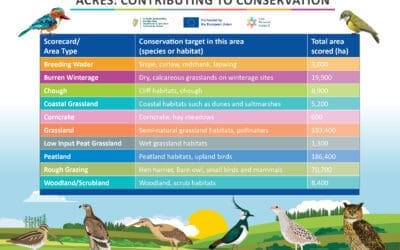Climate change poses evolving challenges, and a commitment to continuous innovation and research is crucial for identifying and implementing effective strategies. This forward-looking perspective ensures that mitigation and adaptation plans remain adaptive and resilient to changing environmental conditions.
Addressing climate change requires collective efforts and awareness at all levels of society. Engaging communities and fostering a greater understanding of climate issues can enhance the effectiveness of both mitigation and adaptation measures.
Highlighting that a successful climate strategy involves not only reducing emissions (mitigation) but also actively preparing for and responding to the impacts of climate change (adaptation). This underscores the need for a balanced and integrated approach.
Involving local communities in agricultural decision-making processes fosters a sense of shared responsibility and ensures that farming practices align with cultural values and community needs. Collaborative initiatives can include community-supported agriculture programs and educational outreach.
Permaculture principles guide the design of agricultural systems by mimicking natural ecosystems. This approach fosters diversity, resilience, and self-sufficiency. Permaculture systems often involve companion planting, agroforestry, and other techniques that prioritise long-term sustainability.
Practices that promote soil health are integral to sustainable agriculture. Cover cropping helps prevent soil erosion, crop rotation mitigates nutrient depletion, and reduced tillage maintains soil structure. Healthy soil is a cornerstone of productive and sustainable farming.
Selecting sustainable and locally sourced materials for construction aligns with the principles of green architecture. This includes using recycled materials, low-impact construction methods, and eco-friendly building designs to minimize the environmental footprint of agricultural infrastructure.
The integration of smart technologies in agriculture, such as sensors, drones, and data analytics, enables farmers to make data-informed decisions. Precision agriculture, for example, allows for targeted resource application, optimizing the use of water, fertilizers, and pesticides.
Effective waste management is critical for reducing the environmental impact of agricultural activities. Composting organic waste and recycling materials help close the nutrient loop, creating a more sustainable and circular approach to farming.
The CAP Strategic Plan (CSP) prioritises the creation of diverse and ecologically rich landscapes. Preserving natural habitats, planting cover crops, and avoiding the use of harmful chemicals foster a balanced ecosystem. Biodiversity not only enhances the resilience of the agricultural environment but also contributes to pest control and pollination.
Water-efficient irrigation systems, such as drip irrigation and precision watering techniques, are essential components of green agriculture. Additionally, capturing and utilizing rainwater through rainwater harvesting systems can supplement water resources, particularly in regions prone to water scarcity.
Integrating renewable energy sources, such as solar panels and wind turbines, not only reduces the reliance on fossil fuels but also contributes to a more sustainable and resilient energy supply for agricultural operations. This transition towards clean energy aligns with broader efforts to combat climate change.
This involves designing agricultural structures and systems with a focus on minimising resource inputs while maximising output. Efficient use of water, energy, and land is crucial in optimising productivity and reducing the environmental footprint of agricultural activities.
